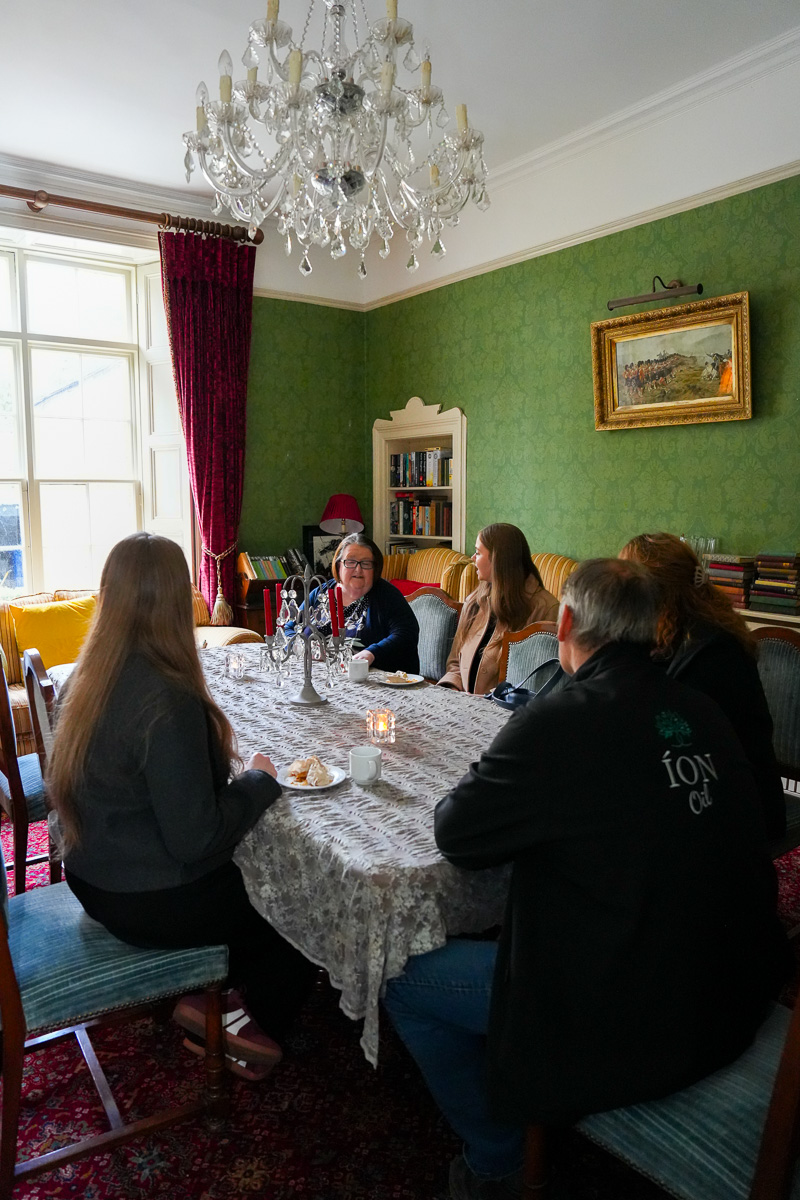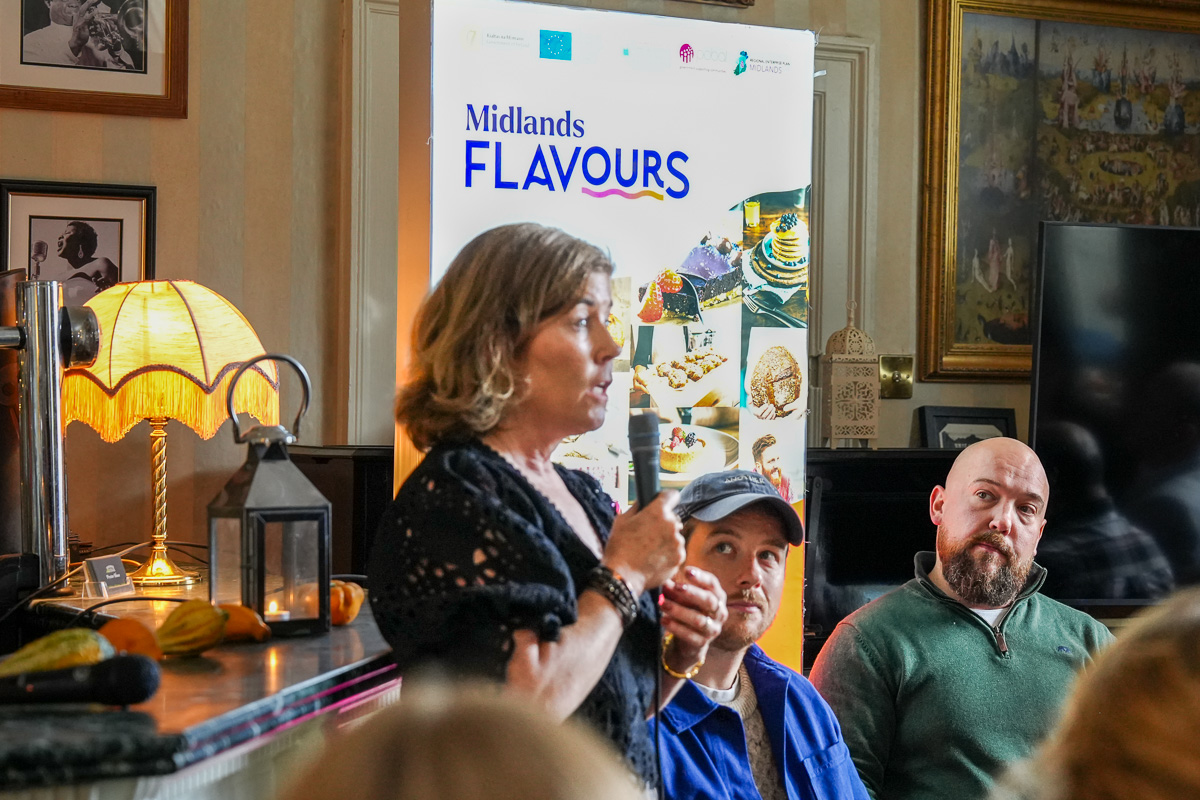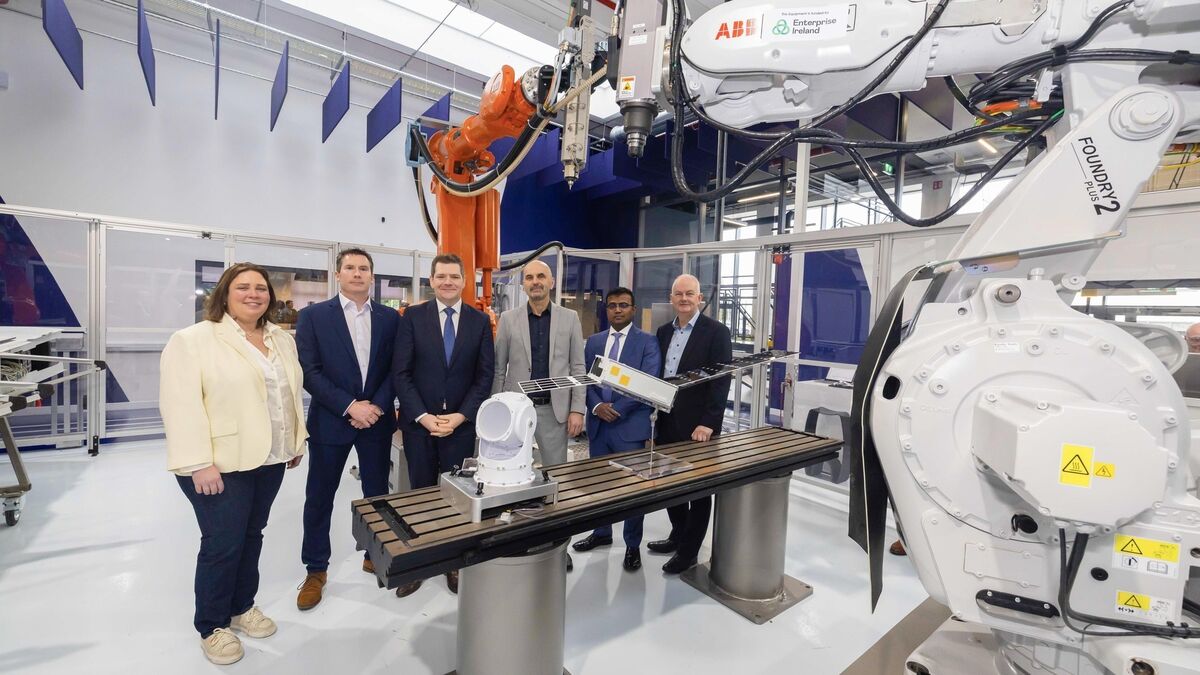
Midlands Flavours recently hosted a powerful networking lunch and panel discussion, ‘Growing Against the Grain’, at the stunning ‘Preston House’ in Abbeyleix, bringing together award-winning chefs, producers, and food innovators.
The event tackled a critical question for the region’s food landscape: In this uncertain but opportunity-filled environment, how can local producers successfully get their exceptional food onto a chef’s plate or cutting board?
Hosted by food consultant James Burke, the discussion featured an accomplished line-up of speakers: Wellington (Mueller & O’Connell), Sam Moody (Bramley’s), Cúán Greene (Omos), Mark King (Odaios Foods), Shannon Forrest (Rivesci), and Helen Gee (G’s Gourmet Jams).
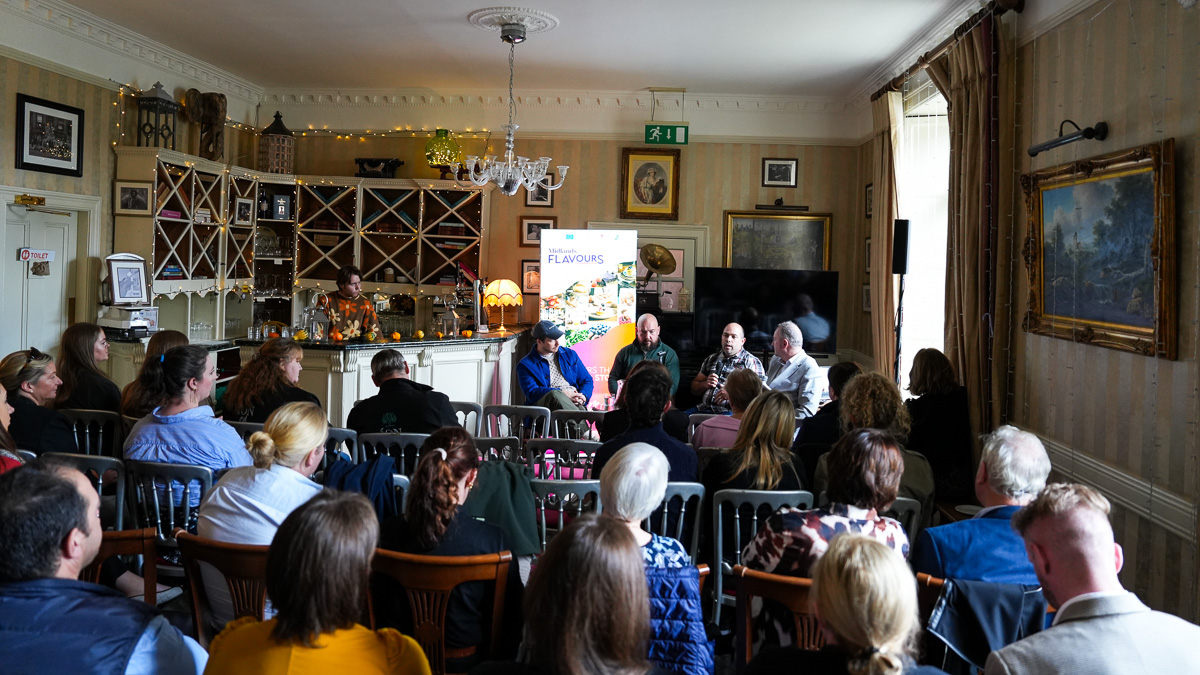
Defining ‘Local Food’: Respect and Responsibility
The panel began by dissecting the very definition of local food. For chef Cuan Grian, who is opening Omos next year—a 40-seater restaurant and guesthouse with four acres dedicated to growing its own food—the answer is simple: respect.
“Yeah, it’s about respect. I think it’s respect for the product and respect for the people growing,” Cuan stated.
This respect extends beyond the kitchen to the kitchen garden. Sam Moody of Bramley’s demonstrated a commitment to sustainability, noting his restaurant’s closed-loop system: “Everything we grow, we compost and then grow again.”
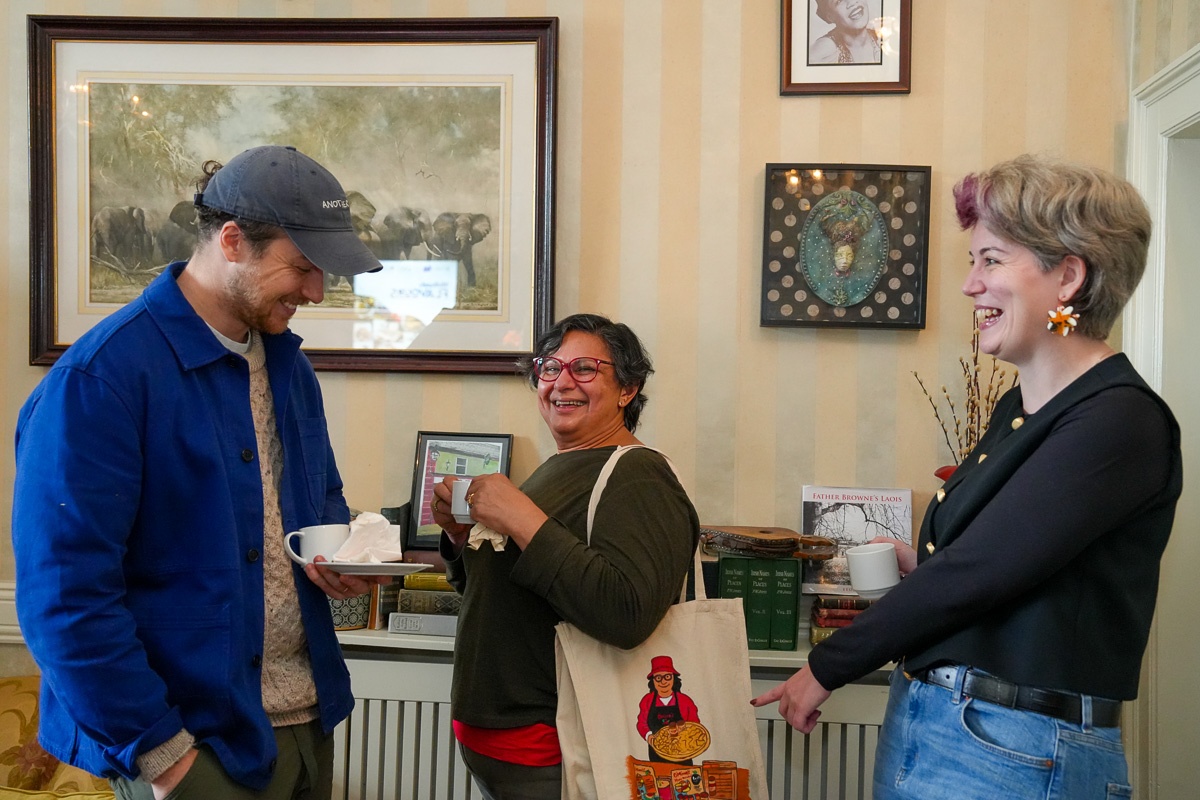
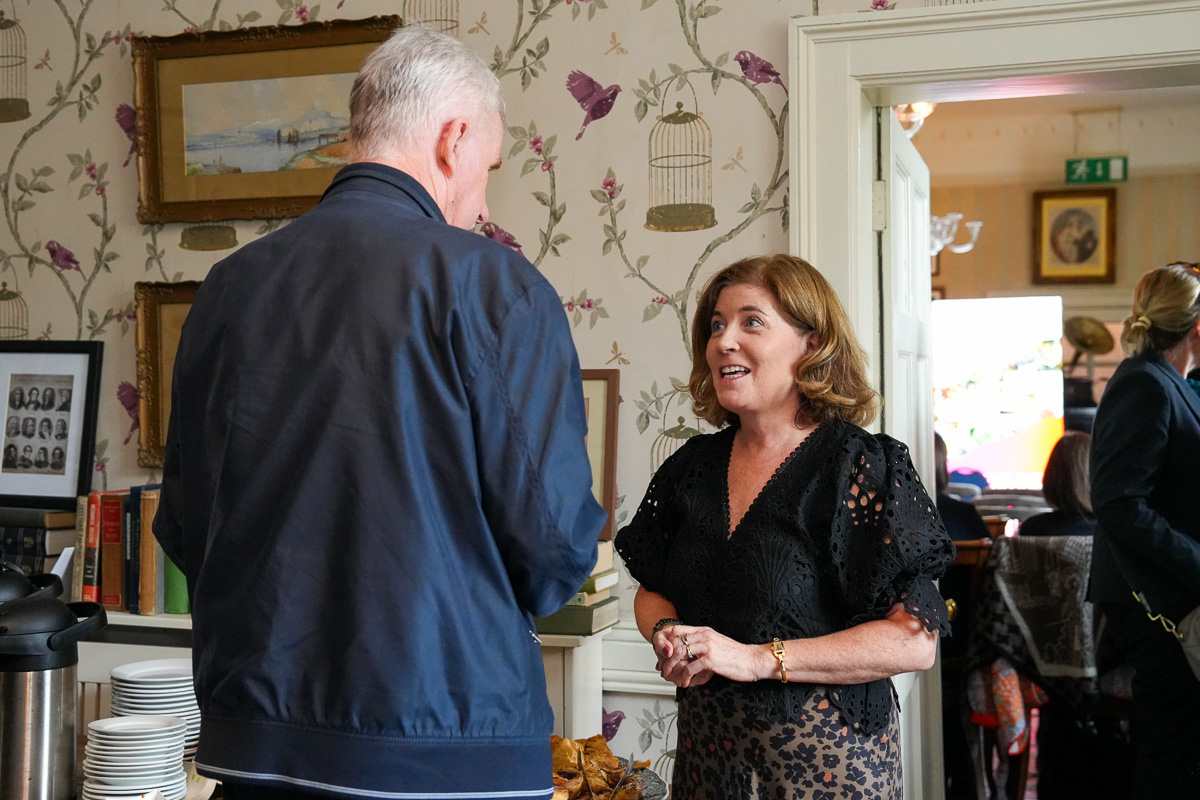
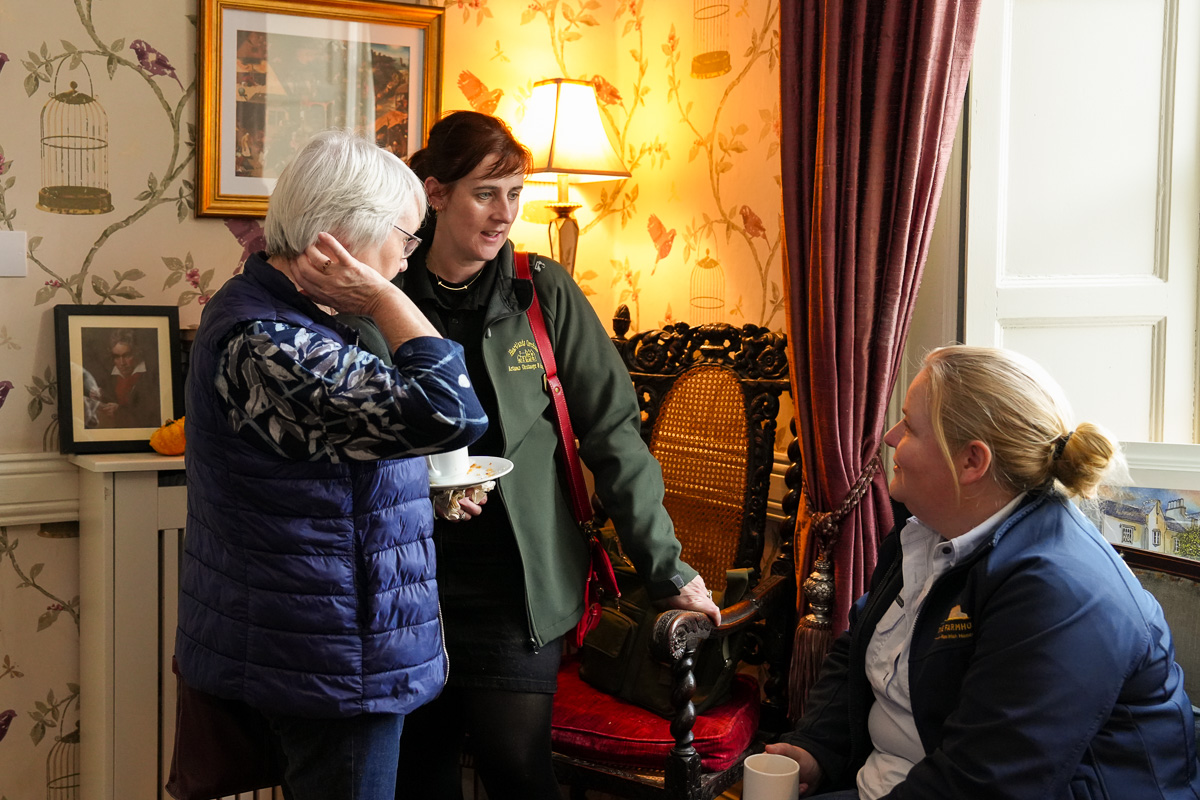

Communication is the Core Ingredient
A central theme was the vital importance of education and communication between the kitchen and the field. Cuan Grian emphasised the power of farm visits, explaining that while they look great on Instagram, they are an essential educational tool for the entire team, giving them a real idea of where the food originates.
Crucially, the relationship must be a partnership built on mutual learning. Cuan highlighted the need for constant communication with growers: “Chefs know nothing about soil, and growers sometimes have limited knowledge about how to prepare ingredients. It’s about talking to each other and developing that knowledge.” This collaboration can lead to amazing things, including farmers growing specialist ingredients the chef specifically needs.
Advice for Producers: Skip the Email, Bring the Product
For small operators and specialist producers looking to break into the restaurant market, the panel offered blunt, actionable advice on making the initial approach.
Host James Burke asked the speakers directly how a supplier should introduce themselves to a chef. The consensus was overwhelming: face-to-face interaction beats digital communication every time.
Sam Moody’s advice was particularly direct: “To me, emails are a waste of time… if you’re selling a thing, you need to bring the thing and then we’ll look at it and taste it.” Relationships, he argued, are not formed from emails; that’s what large companies do.
Cuan Grian echoed this sentiment, advising producers to “Just get in touch… Bring in your product and tell the story behind it. And share why you’re doing it.”
The lively discussion, which also covered industry trends and the pros and cons of organic production, underscored a fundamental message that all panellists agreed upon: face-to-face interaction with buyers, flexibility in your offering, and collaboration are essential to success.
As James Burke concluded, the importance of community partnership is constant, and the Midlands region is a powerhouse ready to support this type of local, food-first collaboration. Co-founder of Rivesci, Shannon Forrest, reinforced this, wholeheartedly believing that sharing, learning, and growing through your network ultimately drives business success. Have a look at our Midlands Flavours Food and Drink Directory.
